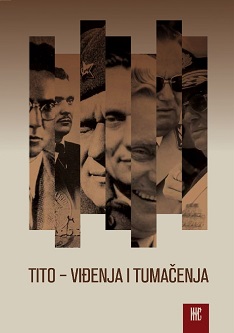Viđenje Tita u američkim dokumentima 1951-1958.
The Perception of the President of Tito in American Documents 1951-1958
Author(s): Ivan Laković
Subject(s): Diplomatic history, Political history, International relations/trade, Post-War period (1950 - 1989)
Published by: Institut za noviju istoriju Srbije
Keywords: Tito; Yugoslavia; USA; SSSR; NATO; Mediterranean; diplomacy; documents; communism; blocks; non alignment policy;
Summary/Abstract: Although highly fragmental, this attempt of insight in American view on Tito and Yugoslavia during the fifties, presents some basic premises that have characterized this relation. The representatives of American administration at all levels had a tendency to equalize the mentioned terms, mostly due to the widespread conscience of Tito’s decisive influence on the state’s policy course. That tendency is mostly visible in political and diplomatic documents, slightly less in military, while the list in economical ones. His regime has been described as the „communist dictatorship", but at the same time has been noted that exactly such its nature enabled the US to deploy the „strategy of wedge" into Eastern bloc. American analyses show that support to a renegade communist country and its leader would have provided much more political benefits than mere acquiring of ideologically similar ally. That policy didn’t have many genuine sympathies within the US’ officials, but its premises were the prevailing ones while decision making in regard to Yugoslavia. Americans knew that the Tito’s main intention was to secure as more as neutral position between the blocks, providing through it few important strategic advantages to the West: consolidation of NATO’s southern flank, protection of important Ljubljana’s gap and denial of Soviet presence in Mediterranean. Measuring all the related activities this way, US were willing to allow or, at list, not to eagerly oppose Tito's political projects of non alignment, knowing that under his government, Yugoslavia was to pursue the politics more on their, than on SSSR's favor. For given circumstances, it was more than enough.
Book: Tito - Viđenja i tumačenja
- Page Range: 437-447
- Page Count: 11
- Publication Year: 2011
- Language: Serbian
- Content File-PDF

